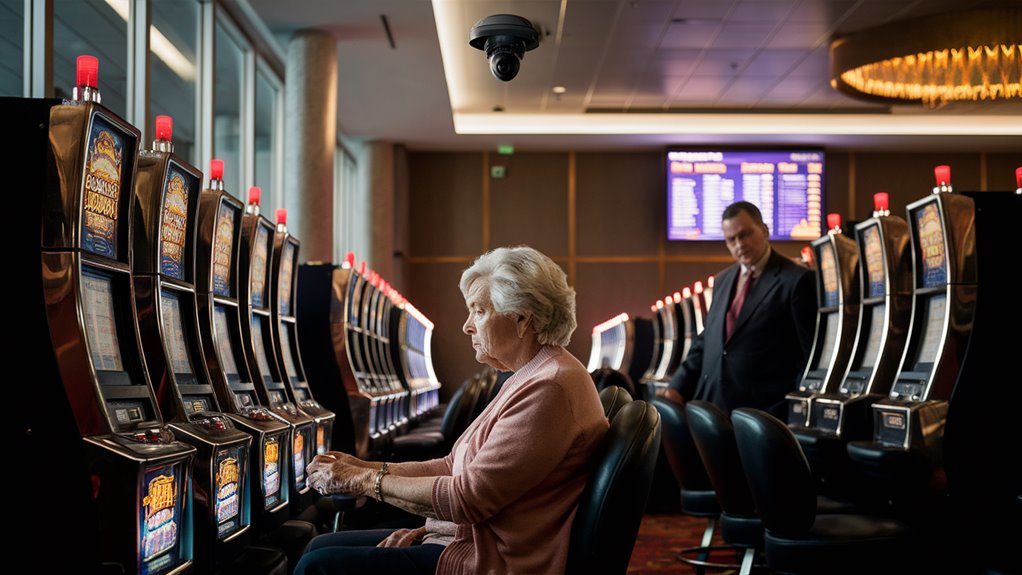카지노 확률의 진실: ‘플레이어 권리 선언’ 신화 해부

카지노 규제와 공정성 이해하기
‘플레이어의 권리 선언’이라는 이름으로 카지노가 공정한 확률을 제공해야 한다는 주장은 전혀 사실이 아니다. 이 신화는 1940년대 라스베이거스의 마케팅 전략에서 기원하였으며, 이후 할리우드 영화와 언론 보도를 통해 더욱 확산되었다.
법적 체계와 하우스 엣지의 현실
카지노는 다음과 같은 항목에 중점을 두는 엄격한 지역별 게임 규제를 기반으로 운영된다:
- 재정 안정성 보장
- 범죄 예방 조치
- 소비자 보호 기준
- 운영 투명성
하지만 이러한 규제는 플레이어와 카지노 간의 확률을 동등하게 만들 것을 요구하지 않는다. 하우스 엣지는 카지노 운영의 핵심 수익 모델이다:
- 블랙잭: 1~2% 하우스 엣지
- 아메리칸 룰렛: 5.26% 하우스 엣지
- 슬롯 머신: 2~15% 하우스 엣지
역사적 맥락과 현대 카지노
공정한 확률을 요구하는 규제가 존재한다는 오해는 1940년대 라스베이거스 초기 마케팅에서 유래한 것이다. 당시 카지노는 ‘정직한 게임’을 홍보하며 고객을 유치하려 했고, 현재도 게임 규칙 및 수익 모델은 각 주의 게임 위원회를 통해 명확히 규제되고 있다.

책임 있는 게임을 위한 정보 이해
카지노 운영의 수학적 현실을 이해하는 것은 책임 있는 도박의 핵심이다. 카지노는 균등한 확률을 제공할 의무는 없지만, 다음을 준수해야 한다:
- 정확한 게임 설명
- 투명한 지불 구조
- 검증된 난수 생성기 사용
- 관할 규제 요건 충족
이러한 지식은 플레이어가 허위 정보 대신 실제 확률을 기반으로 현명한 선택을 내리는 데 도움이 된다.
공정한 확률 신화의 기원
초기 라스베이거스 마케팅의 진화
공정한 카지노 확률이라는 신화는 1940년대 라스베이거스에서 시작되었다. 당시 카지노 마케팅 부서는 ‘공정한 게임’과 ‘정직한 플레이’ 같은 문구를 내세워 치팅이 없는 운영을 강조했으나, 이것이 확률이 공정하다는 의미로 왜곡되었다.
역사적 오해의 발생
1946~1948년의 네바다 게임 규제는 일부 언론 보도를 통해 잘못 해석되었다. 해당 규제는 조작된 게임과 장비 조작을 금지하는 내용이었으나, 보도는 플레이어에게 ‘공정한 기회’가 법적으로 보장된다는 잘못된 인식을 확산시켰다.
이후 전국 불법 도박장들이 ‘라스베이거스 룰’을 자처하며 이 신화를 더욱 확대하였다.
문화적 영향과 확산

1960년대 이후 이 신화는 다음의 경로를 통해 확산되었다:
- 할리우드의 카지노 도박 묘사
- 플레이어 사이의 구전 정보
- 존재하지 않는 국제 도박 표준에 대한 믿음
- 플레이어 권리 선언의 오해
이러한 요소들은 ‘모든 카지노는 공정한 확률을 제공해야 한다’는 대중적 신화를 만들어냈으며, 실제 법적 규제와는 전혀 무관한 주장이다.
현대 카지노 규제 체계 이해하기
핵심 규제 요건
세계 주요 도박 관할구역의 카지노 규제는 확률의 공정성보다는 운영의 안정성과 안전성 유지에 초점을 맞춘다. 예를 들어, 네바다 게임 관리 위원회와 같은 기관은 다음을 중점적으로 감독한다:
- 재정 안정성 및 지급 능력
- 불법 활동 방지
- 운영 무결성 유지
주요 컴플라이언스 요건
- 현금 보유 요건 충족
- 정기적인 회계 감사
- 보안 프로토콜 및 감시 시스템
- 플레이어 신원 인증
- 소비자 보호 조치
- 책임 도박 프로그램 참여
게임 확률의 실제
슬롯 머신은 일부 관할 지역에서 RTP(환수율) 기준을 갖지만, 대부분의 테이블 게임은 확률을 법적으로 규정하지 않는다.
예를 들어, 블랙잭, 룰렛, 크랩스 등은 게임 규칙과 수학적 확률 구조를 기반으로 하며, 카지노는 시장 경쟁을 통해 일정 수준의 수용 가능한 하우스 엣지를 유지한다.
소비자 보호 중심 접근
현대 카지노 규제는 다음을 강조한다:
- 투명한 운영 절차
- 명확한 소비자 경고
- 게임 무결성 검증
- 안전한 금융 거래
- 플레이어 보호 수단
이러한 체계는 엄격한 통제 환경을 제공하면서도 시장 원리에 따라 자연스럽게 확률과 지급률이 형성되도록 한다.

소셜 미디어 기반 카지노 신화 반박
카지노 규제 및 공정성의 실체
카지노 규제와 도박법은 관할권마다 매우 다르므로, ‘국제적 환수율 의무’ 또는 ‘글로벌 플레이어 권리장전’과 같은 주장은 사실이 아니다. 각 국가와 주는 독자적인 규제 체계를 운영한다.
확률 공개의 현실
일부 지역에서는 투명성 요구가 존재하지만, 모든 게임의 정확한 확률을 공개할 의무는 없다. 다음 항목은 지역별로 상이하다:
- 게임 공정성 문서화
- 확률 공개 요건
- RTP 보고 기준
- 통계 검증 방법
슬롯 머신 기술과 RNG
현대 슬롯 머신은 정교한 RNG(난수 생성기) 시스템으로 운영되며, 다음과 같은 점에서 소셜 미디어 루머를 반박할 수 있다:
- 결과는 진정한 무작위임
- 이전 회차 결과가 미래에 영향을 미치지 않음
- 지정된 잭팟 타이밍 없음
- 모든 스핀은 독립된 사건임
신뢰할 수 있는 정보 출처
- 공식 게임 위원회 웹사이트
- 면허를 갖춘 규제 기관
- 인증된 업계 전문지
- 도박 관련 학술 연구소
카지노 운영에 관한 정보는 소셜 미디어보다는 이러한 공식 소스를 기준으로 검토해야 하며, 비전문 계정에서 발생하는 오보에 주의해야 한다.
실제 카지노 확률 구조 이해하기
하우스 엣지의 수학적 기반
카지노 확률은 모든 게임에서 카지노 측이 장기적으로 수익을 내도록 설계된 수학적 원리에 기반한다. 예를 들어:
- 블랙잭: 기본 전략 사용 시 하우스 엣지 1~2%
- 슬롯 머신: RTP 85~98%로, 하우스 엣지 2~15% 사이
규제 구조와 게임별 확률
주 게임 위원회는 게임 운영에 대해 수학적 검증을 수행한다. 예:
- 아메리칸 룰렛: 5.26% 하우스 엣지 (0과 00)
- 유럽 룰렛: 2.7% 하우스 엣지 (단일 0)
수학적 확률의 이해
- 프로그래밍된 RTP 비율
- 통계적 확률 구조
- 게임별 하우스 엣지 계산
플레이어를 위한 핵심 인사이트
카지노는 규제에 따라 확률을 투명하게 공개하지만, 균등한 확률 제공 의무는 없다. 하우스 엣지는 다음에 따라 다르게 적용된다:
- 게임 선택
- 베팅 전략
- 게임 규칙
- 지역 규제
따라서 플레이어는 근거 없는 공정성 주장보다는, 검증된 수학적 확률을 기준으로 도박 결정을 내려야 한다.
책임 있는 도박을 위한 실천 지침
확률 이해와 한계 설정
책임 있는 도박은 단순히 확률을 아는 것을 넘어서, 스스로의 시간과 재정 한계를 명확히 설정하고 이를 지키는 것이다.
기본 전략
재정 관리
- 소득 여유 내에서 엄격한 예산 설정
- 도박 전용 계좌 분리 운영
- 지출 내역 철저히 기록
시간 관리
- 세션당 시간 제한 설정
- 30분 간격 휴식 규칙 적용
- 타이머 앱 사용으로 활동 시간 추적
행동 원칙
- 손실을 쫓지 말 것
- 술이나 약물 없이 이성적으로 도박 진행
- 감정적 판단과 도박을 분리
- 도박 자금을 빌리지 말 것
중독 예방 수단

자가 차단 프로그램(Self-Exclusion)
스스로 접근 제한을 설정할 수 있는 프로그램은 중독 위험에 대비하는 중요한 장치다. 사용자는 일정 기간 카지노 또는 플랫폼 이용을 차단할 수 있다.
지원 자원
- 24시간 도박 상담 핫라인
- 전문 심리 상담 서비스
- 익명 지원 모임
- 온라인 자가 진단 도구
건강한 도박 습관 유지
도박은 오로지 오락 목적이어야 하며, 다음의 목적으로 활용해서는 안 된다:
- 소득 창출
- 재정 회복 수단
- 정서적 해소 수단
- 문제 해결 방식
책임 있는 도박이란, 사전 설정된 한계를 기준으로 자율적인 의사결정을 유지하는 것이다.





